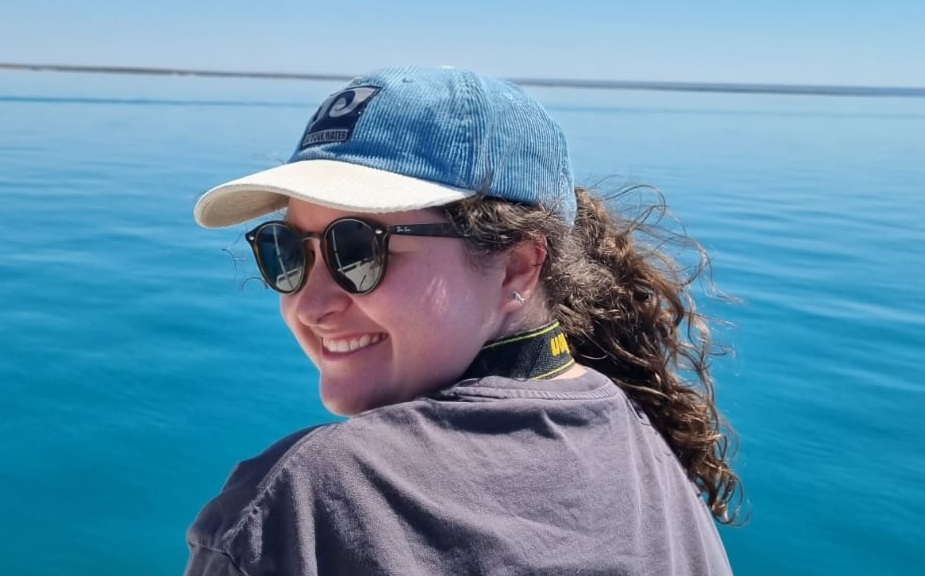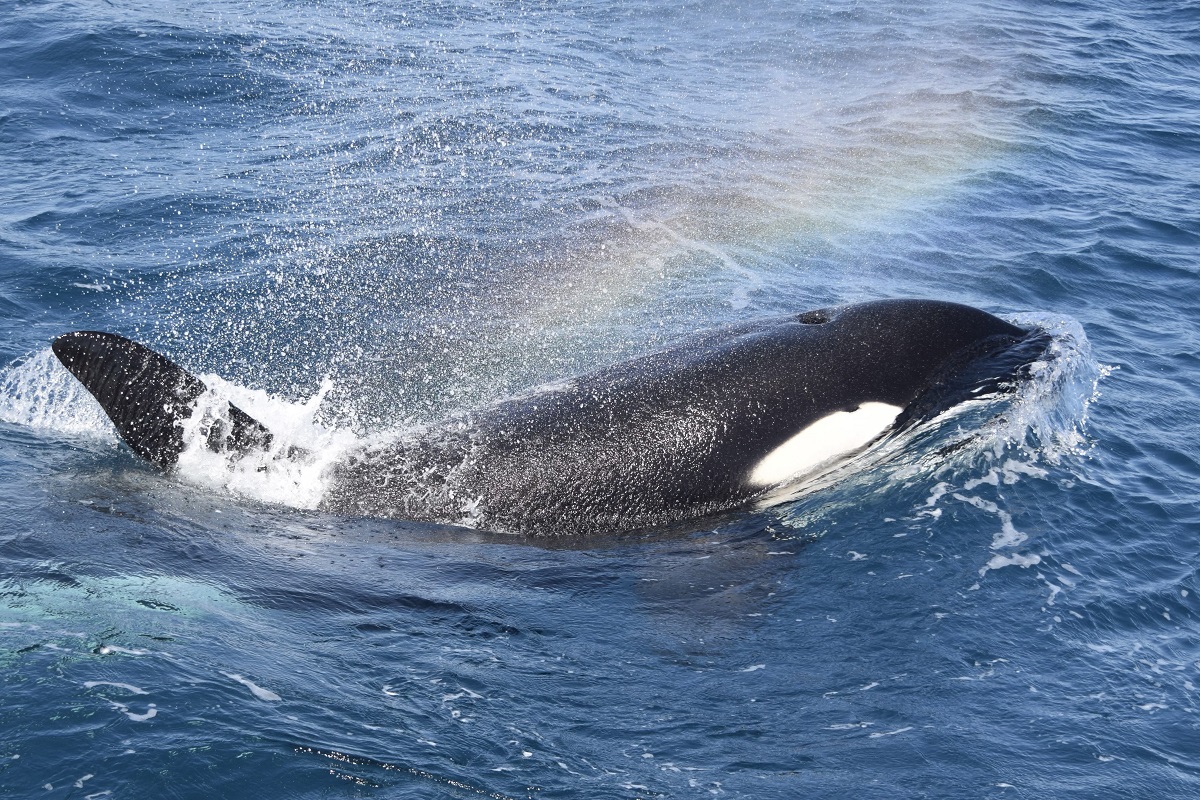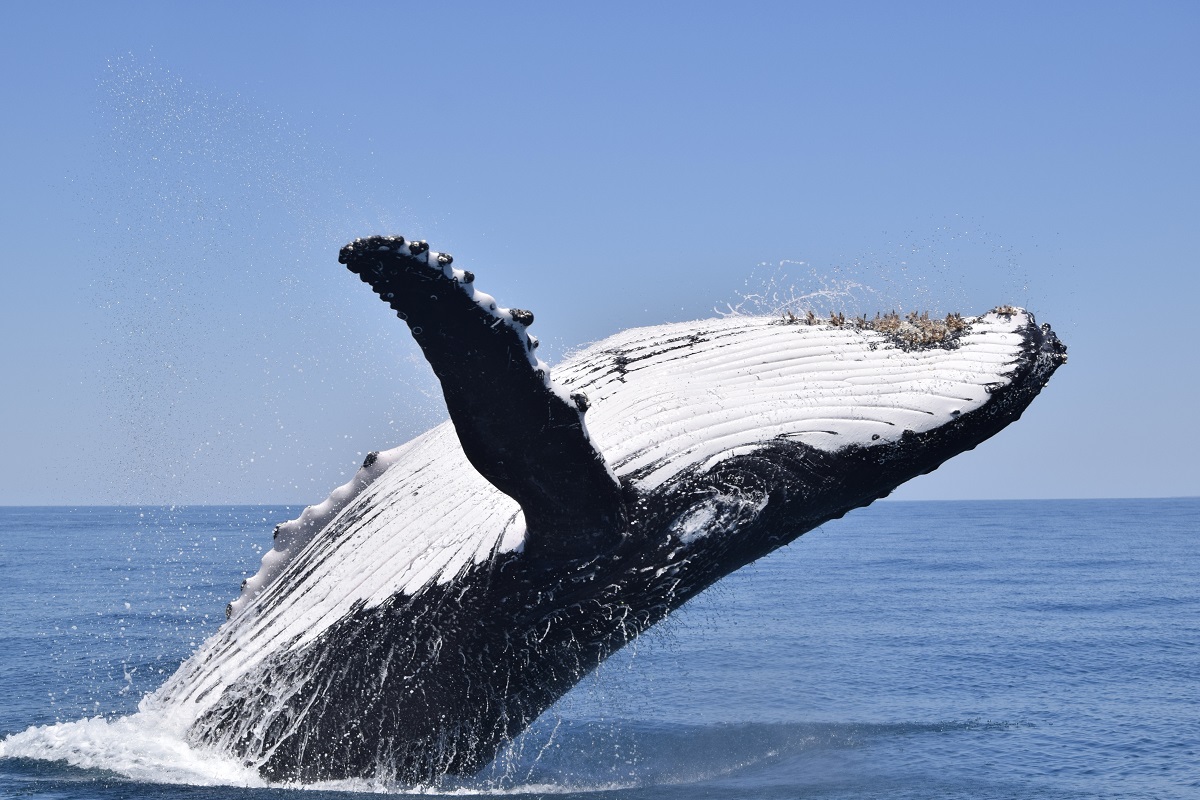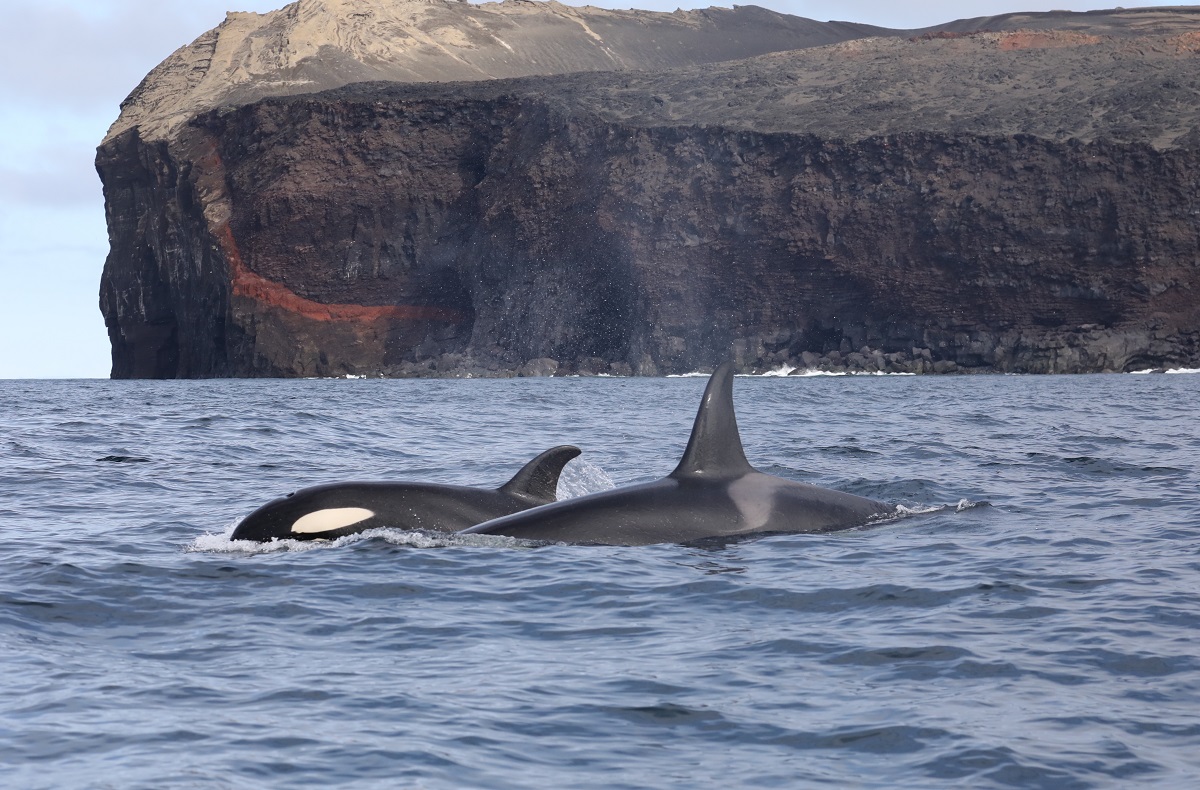
Having made up her mind at five years old to become a marine biologist, PhD candidate Isabella Reeves is now working with Traditional Owners to understand the origin and fate of a population of killer whales that once hunted together with First Nations people.
What is your role here at Flinders?
Currently I am PhD Candidate in my third year. I am supervised by Professor Rob Edwards, co-leader of the Flinders Accelerator for Microbiome Exploration group, Dr Lauren Meyer, co-leader of the Southern Shark Ecology group, and I am externally supervised by Associate Professor Andrew Foote from the University of Oslo and John Totterdell, director of the Cetacean Research Group. I also have been teaching in science topics across the university since 2017.
Tell us a little about your research
 At my core, I am marine biologist with a passion for conservation and evolution. My primary field of expertise centres around the ecology and genomics of marine mammals, with a particular focus on killer whales. My research takes a multi-disciplinary approach, to unravel how populations are evolving through time and space. Currently my PhD research employs different methods across biochemistry, genomics and behavioural ecology to investigate the evolutionary ecology of Australasian killer whales, to understand how their history may be affecting their population dynamics and behaviour. One of my favourites components of my PhD has been working with Traditional Owners and using ancient DNA methods to understand the origin and fate of a population of killer whales that once whaled together with First Nations people – you read more about that research here.
At my core, I am marine biologist with a passion for conservation and evolution. My primary field of expertise centres around the ecology and genomics of marine mammals, with a particular focus on killer whales. My research takes a multi-disciplinary approach, to unravel how populations are evolving through time and space. Currently my PhD research employs different methods across biochemistry, genomics and behavioural ecology to investigate the evolutionary ecology of Australasian killer whales, to understand how their history may be affecting their population dynamics and behaviour. One of my favourites components of my PhD has been working with Traditional Owners and using ancient DNA methods to understand the origin and fate of a population of killer whales that once whaled together with First Nations people – you read more about that research here.
How did you get into this field?
At the age of five, I remember telling my mum I wanted to be a marine biologist to work with dolphins, and ever since then, I have made conscious decisions to give myself the best chance of pursuing this career path. This has included several projects and internships both at Flinders and internationally to give me taste of what was on offer, and what I liked the best.
 Getting to work with killer whales was sheer luck. When I was finishing high school, the first Australian dedicated killer whale project had only just started. I had always loved killer whales, the “Free Willy” films were a massive driver behind this, and then I was fortunate to meet John Totterdell in my undergraduate degree, the scientist leading this dedicated killer whale research in Australia. He took me under his wing, taught me everything he knows and introduced me to the rest of Australian killer whale team. Turns out we are all like-minded individuals who make a great team. Without John, my work would not be possible, so I am always grateful for him.
Getting to work with killer whales was sheer luck. When I was finishing high school, the first Australian dedicated killer whale project had only just started. I had always loved killer whales, the “Free Willy” films were a massive driver behind this, and then I was fortunate to meet John Totterdell in my undergraduate degree, the scientist leading this dedicated killer whale research in Australia. He took me under his wing, taught me everything he knows and introduced me to the rest of Australian killer whale team. Turns out we are all like-minded individuals who make a great team. Without John, my work would not be possible, so I am always grateful for him.
What do you love most about your work?
Killer whales are the second most widely distributed species on Earth, following humans. This wide distribution has provided me with the opportunity to explore remote and often breathtaking locations around the world, ranging from the tropics to the frigid Arctic. During my fieldwork, every day on the water brings a fresh, unpredictable experience. From witnessing killer whales hunting an adult blue whale to the observing humpback calves be born, the ocean’s raw and unpredictable nature keeps me constantly on my toes.
 Beyond the exhilarating moments in the field, the people I have the privilege to work with and meet continually inspire and challenge me to become a better scientist. Their dedication and passion for also fuel my own drive to make meaningful contributions to our understanding of the natural world.
Beyond the exhilarating moments in the field, the people I have the privilege to work with and meet continually inspire and challenge me to become a better scientist. Their dedication and passion for also fuel my own drive to make meaningful contributions to our understanding of the natural world.
How do you like to spend your spare time?
Balancing PhD life can be a bit chaotic, so I always check the visibility and swell to make sure I get some time on or under the water when I can- a bit cliché for a marine biologist, I know. I may have also lost count of just how many books about whales I have read, but who’s really keeping track anyway?
What’s your coffee order?
Well, the truth is, I’ve managed to steer clear of the coffee. Caffeine and with final year jitters seems too risky!

